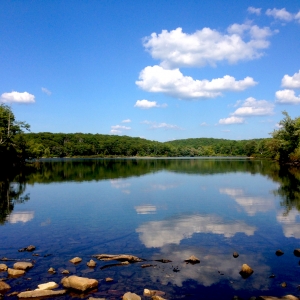The Stream, February 28: Toledo Voters Approve Lake Erie Bill of Rights
The Global Rundown
A Toledo ballot measure, which was approved by a large margin, adds to the growing recognition of the legal rights of nature. Michigan officials release results of statewide drinking water testing for PFAS chemicals. Los Angeles aims to recycle 100 percent of its wastewater by 2035. An indigenous community in Saskatchewan is without running water after its treatment plant burned this week. Following a tailings dam collapse in Brazil, a major mining industry group declares that it will develop a global standard for the design and inspection of waste impoundments.
“We don’t quit. We’ve started a new conversation not only here but all over the world.” — Markie Miller, an organizer with Toledoans for Safe Water, the group that led the campaign to recognize legal rights for Lake Erie. Miller and others were frustrated by the annual harmful algal blooms that foul the lake. Toledo voters approved the ballot measure by a 61 to 39 margin. Toledo Blade
In context: Lake Erie’s Bill of Rights
By the Numbers
2035: Year by which Los Angeles aims to recycle 100 percent of its wastewater, as the city looks to partly wean itself from water imported from distant basins. Meeting that goal means California’s largest city must upgrade its biggest treatment plant, at an estimated cost of $8 billion. Observers called the plan ambitious, but achievable. Today, recycled water accounts for about two percent of L.A.’s water use. That figure could rise to 35 percent if all wastewater is recycled. Los Angeles Times
Science, Studies, and Reports
Sixty-four water systems in Michigan had PFAS levels above 10 parts per trillion, according to state testing in 2018. Only two systems tested above the U.S. Environmental Protection Agency’s health guideline of 70 parts per trillion. The Michigan Department of Environmental Quality tested 1,131 community water systems, in addition to 629 schools and childcare providers that have their own well. Associated Press
On the Radar
Following the collapse in January of a tailings dam in Brazil that killed hundreds of people and polluted rivers, a mining industry group says it will develop global standards for the design and inspection of waste impoundments and requirements for emergency planning. The International Council on Mining and Metals said that its members, which include the largest mining companies, would be held to the standard and that others could sign on. Mining.com
Members of the Carry the Kettle First Nation, in Canada’s Saskatchewan province, will not have running water until next week at the earliest. A fire on February 25 destroyed the community’s water treatment plant. Residents are relying on bottled water and using portable showers and toilets. A temporary treatment plant is planned, but the quality of the water it will produce is uncertain. Building a new treatment plant could take up to two years. CTV News
Brett writes about agriculture, energy, infrastructure, and the politics and economics of water in the United States. He also writes the Federal Water Tap, Circle of Blue’s weekly digest of U.S. government water news. He is the winner of two Society of Environmental Journalists reporting awards, one of the top honors in American environmental journalism: first place for explanatory reporting for a series on septic system pollution in the United States(2016) and third place for beat reporting in a small market (2014). He received the Sierra Club’s Distinguished Service Award in 2018. Brett lives in Seattle, where he hikes the mountains and bakes pies. Contact Brett Walton







Leave a Reply
Want to join the discussion?Feel free to contribute!